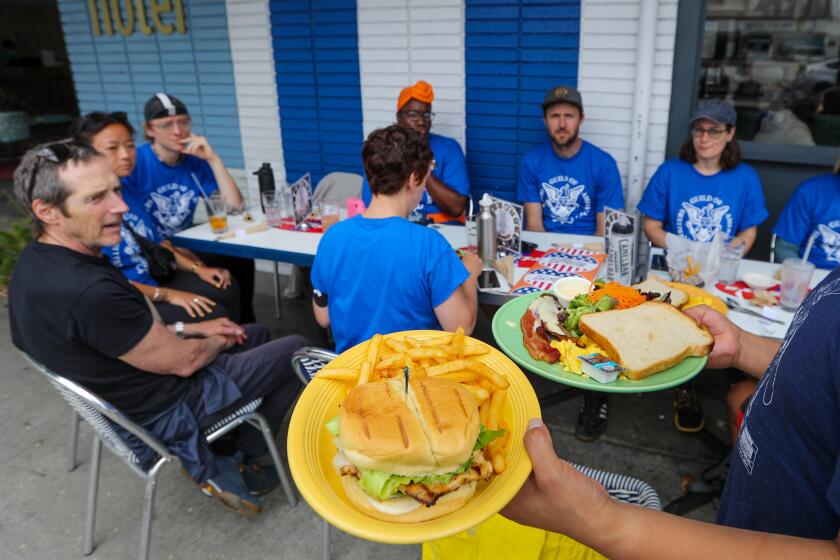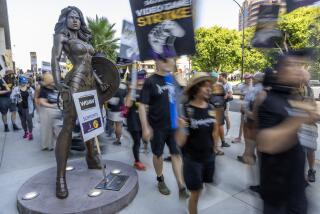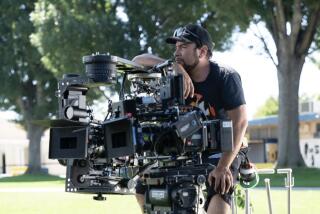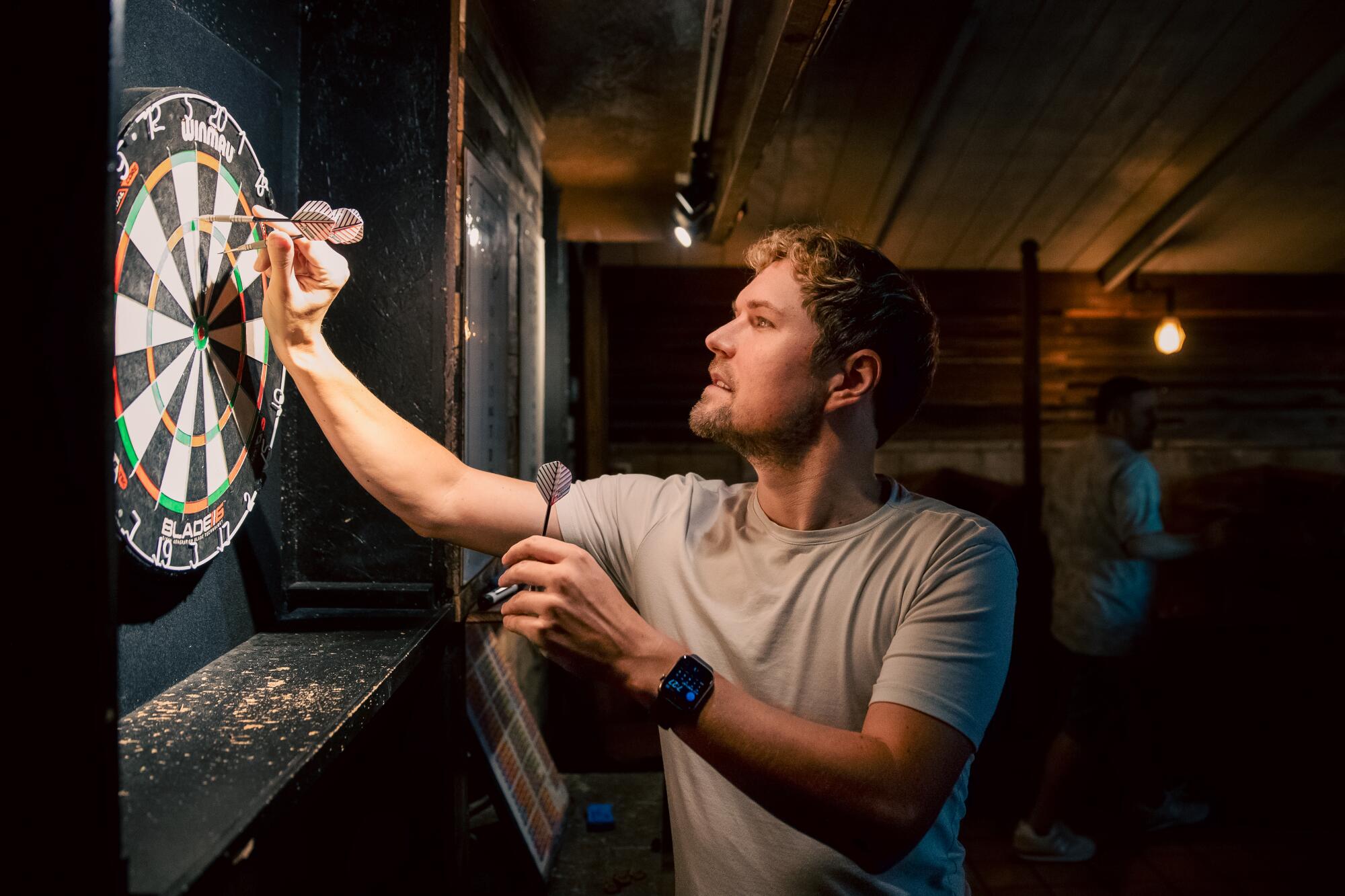
Confession time: In addition to being a food columnist, I am also a member of the performers union SAG-AFTRA. The union went on strike this month, joining the Writers Guild of America in effectively bringing Hollywood to a halt.
I joined the union over a decade ago and am still a member. An inactive member, I should clarify. It’s tough to audition when you’re a full-time journalist. But I still have to abide by SAG-AFTRA rules all the same. Wanting to gauge my fellow performers’ moods following the decision to strike, I did what any good actor would: I headed to the bar.
And I had a 37-cent residuals check in my pocket.
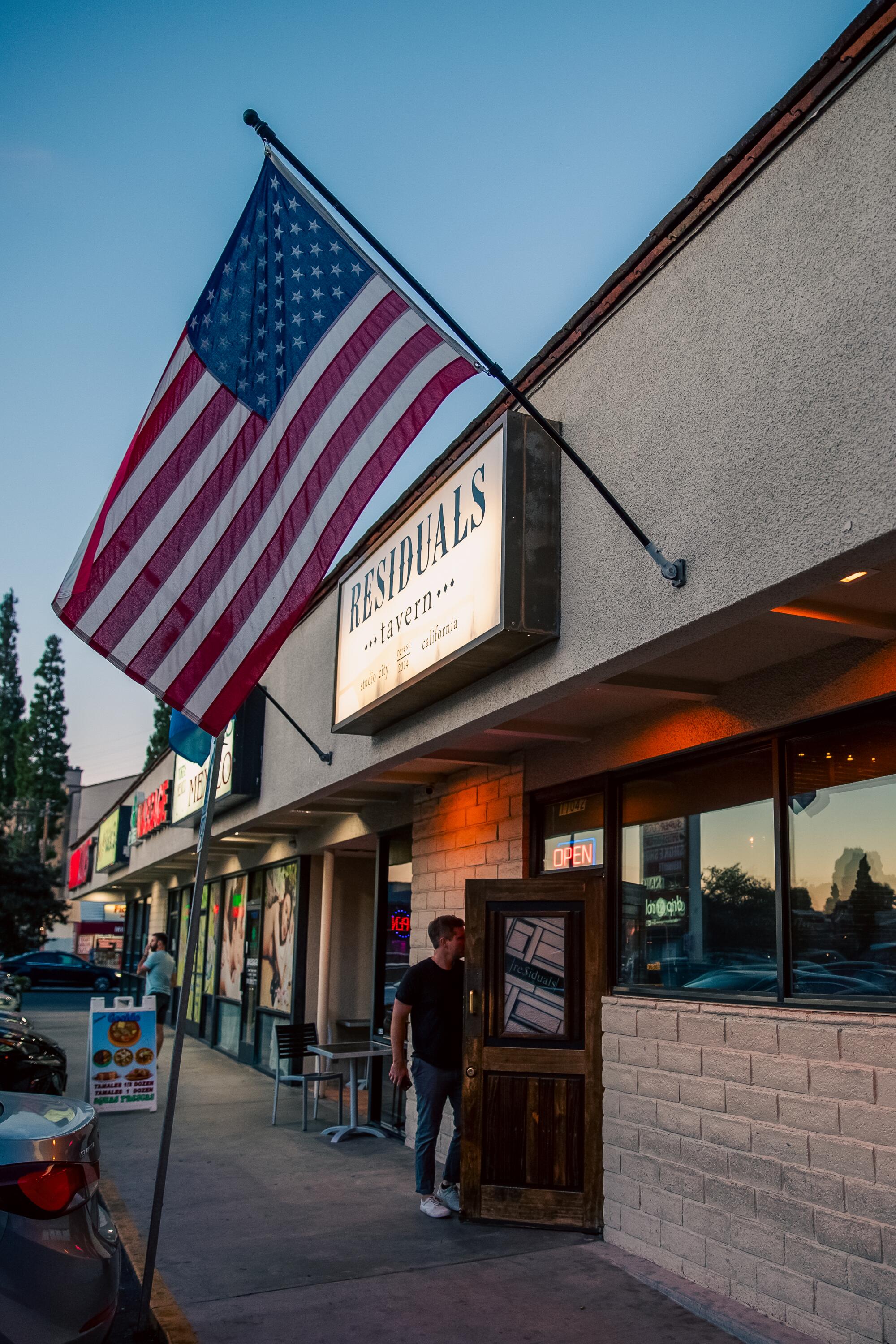
A check for 37 cents isn’t going to get anyone’s blood pumping, but I was in a place where these slips of paper had outsize power: Residuals Tavern, the bar in Studio City popular with industry folks that will, with purchase, generously take your sub-$1 residuals check and give you a drink in return. For the non-actors in the room, a residuals check is a payment you get when a project you’ve done, like a TV show, continues to air after its initial release.
But aside from the walls with framed residuals checks on the way to the bathroom — yes, they do have that — Residuals is like any other neighborhood bar. Darts, jukebox, helpful bartenders and plenty of people sitting around catching the Dodgers game and chatting over their beers and mixed drinks. It just so happens a lot of the people happen to be actors, and many have the strike on their minds.
Strike blues at the bar
Bill Chott may be best known for playing the principal on Disney Channel’s “Wizards of Waverly Place.” A union actor since 1994, he had been on the picket line earlier at Warner Bros. Chott said that, on the positive side, he’s been able to reconnect with old industry friends, something that became difficult during the pandemic. The negative?
“The negative is the fact that we have to stand out in the hot sun and beg for fair pay,” he said.
Chott said he’s seen a “very noticeable” decrease in his residuals payments over the years. “I used to make a living wage … In between jobs, [the money] I made with the residuals would keep me going and it’s not like that anymore,” he said.
Actor JJ Phillips, also a SAG-AFTRA member, echoed that sentiment, and called for a restructuring of the residuals system.
“I’ve worked on a few projects on the streaming platforms,” he said. “More often than not, as an actor you are paid less than you would [get] for sometimes even student film work you’ve done at the start of the career, and you receive no back-end pay.”
“These companies continue to make large sums of profit while the talent they’re using don’t really reap any of the benefits,” he said.
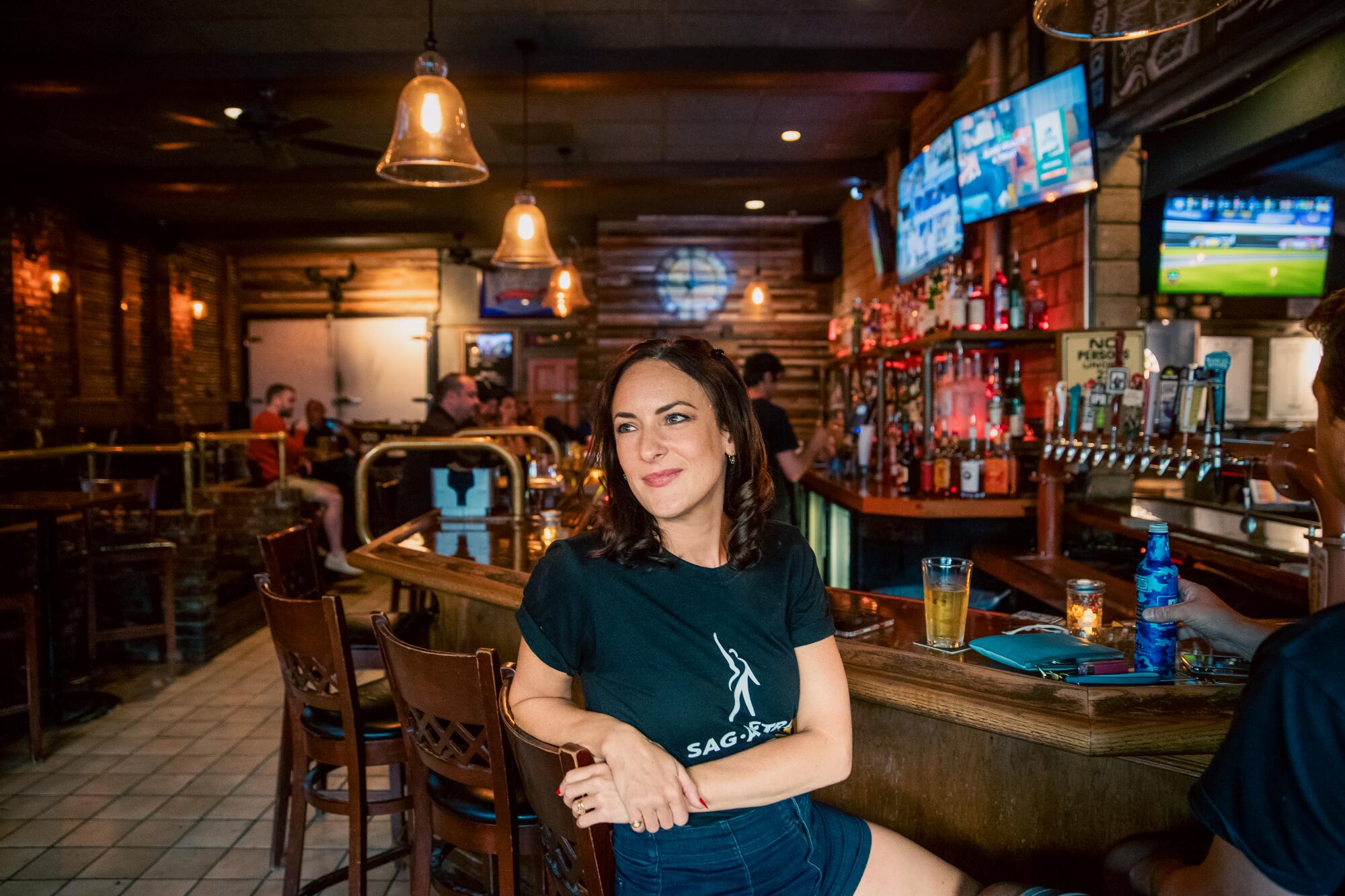
Leroy Edwards III, an actor and union member, showed up to the bar in a SAG-AFTRA shirt. He said he supported the strike.
“Residuals and the revenue that is generated for streaming platforms should be more transparent and more commensurate with the cost of living now,” he said. Edwards appeared in the popular Jeffrey Dahmer miniseries on Netflix, one of the streaming service’s most popular titles, which clocked a billion hours viewed in just 60 days.
But Edwards said he hasn’t been properly compensated.
“If the network is claiming a billion streams or two billions or whatever it is, if the platform is claiming that, my residuals should be commensurate with that and I don’t feel that it is,” he said.
Edwards also noted the importance of increasing wages “so that more actors can get access to healthcare.” Currently, members must have $26,470 in earnings in a 12-month period to qualify. “That’s a big thing,” Edwards said.
‘I’ve been scanned twice’
Then there’s the question of artificial intelligence, which some writers and performers (and frankly journalists) fear could threaten their livelihoods and, ultimately, put them out of work completely.
Actor Leah Caruana, who joined the union in 2017, has experienced it firsthand. Caruana works as a background and stand-in performer in major productions, often multiple times per week. “My bread-and-butter job is working on set,” she said.
“AI directly affects me,” Caruana said. “I’ve been scanned twice.”
Wait — scanned?
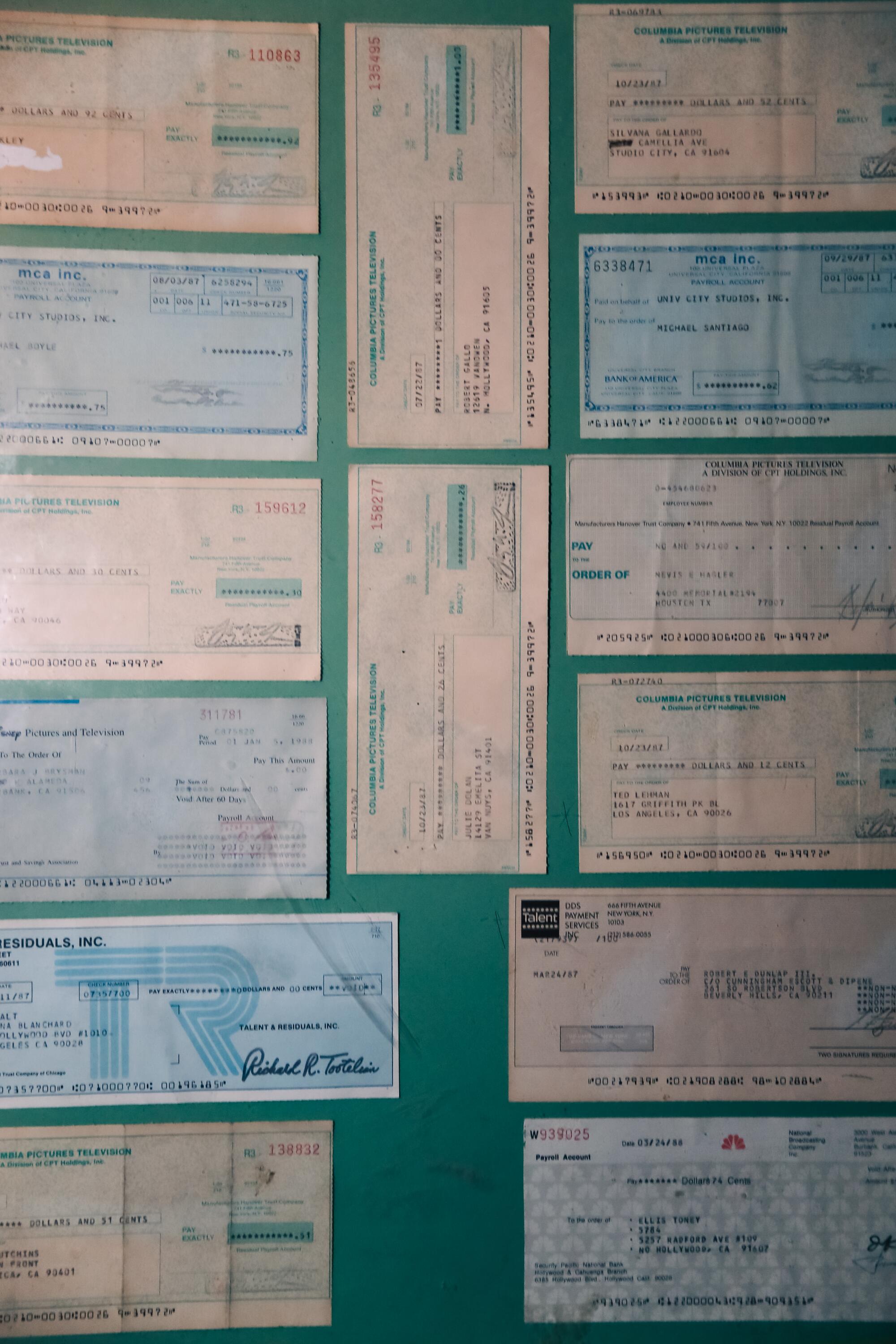
Caruana said that she’s undergone full body scans on sets as a background actor, ostensibly for the purposes of inserting her into other scenes when crowds need to be digitally created.
She described being rounded up with other actors and taken into a truck, one by one, and lifted up on a pedestal to be scanned by a sea of cameras.
“The cameras are all around you. Cameras up, down, probably 250 cameras around you. And it takes a picture all at once and then … all the photographs get loaded up into a database or whatever and then that’s it,” she said.
Caruana said she had no choice to opt out, and that she received no additional pay.
“There’s something sick about the whole situation, about being scanned and not having an option,” she said. On one production, she added, she managed to avoid scanning by hiding in the bathroom while it was being done.
Background actors are near the bottom of the entertainment hierarchy and were unlikely to question a practice like this for fear of losing work, she said.
“You’re not going to throw a fit. You’re not going to make a big deal out of something. You want to be called onset. You want to be the person that they call,” Caruana said.
Caruana firmly believes in the necessity of the strike. “The strike is something that needs to be done to get the attention that these issues deserve,” she said.
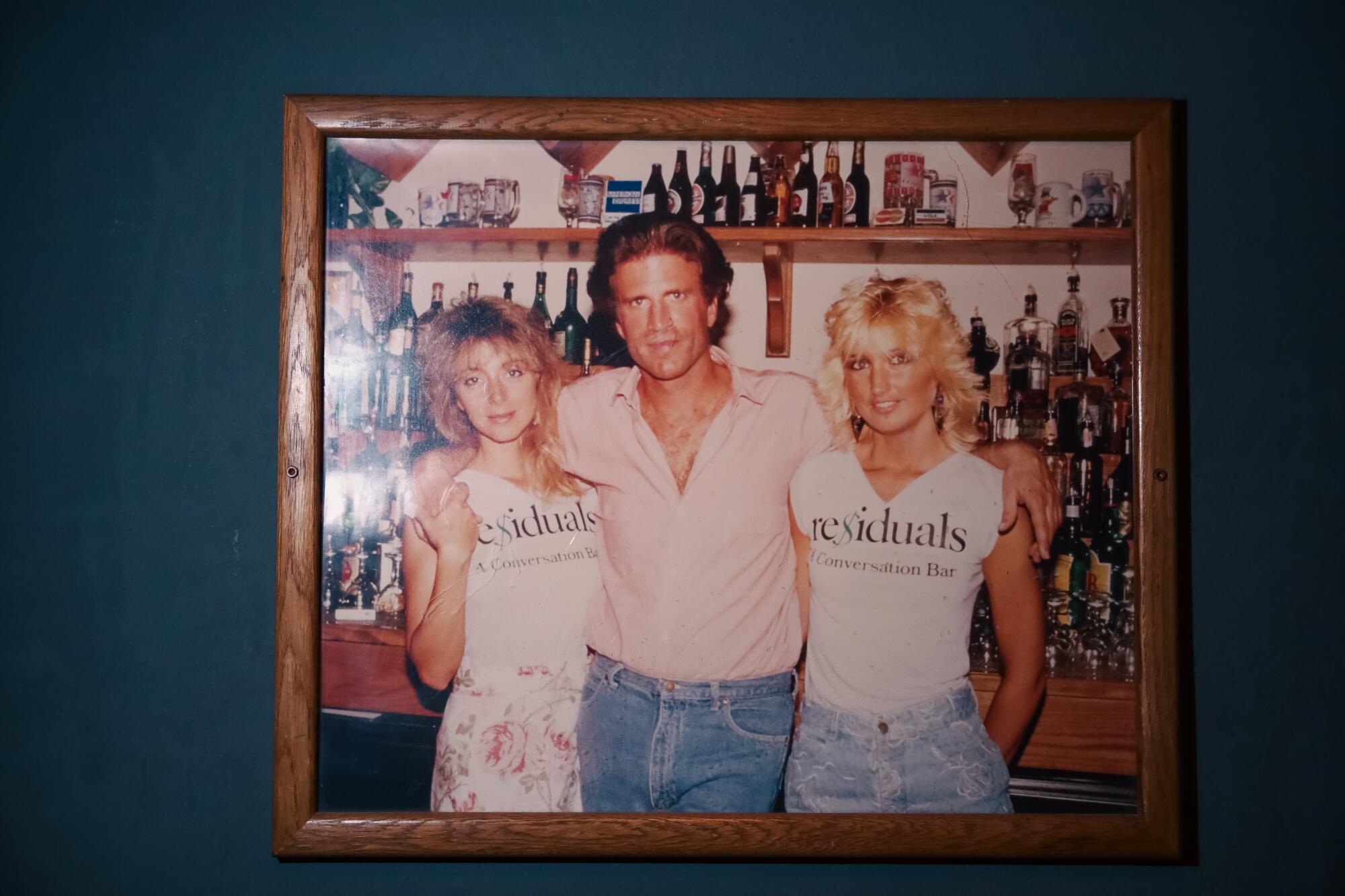
Domino effect on workers
Actors aren’t the only ones affected by the work stoppage.
Freelance production worker Eric Ligocki noted that while actors and writers are the ones most obviously affected by the strike, people who work behind the scenes, like him, suffer too. “I have nothing lined up right now,” he said.
Ligocki said the economic situation was stressful, but said that the strike “needs to be done.”
“There’s less work across the board, for everybody. Besides obviously the actors and the writers… you’ve got grips, electric, camera department, transportation, there’s no jobs happening right now. There’s no shows being shot. For every actor that’s striking and writer that’s striking, there’s 15 … crew members who aren’t working either,” he said.
The Hollywood writers strike affects a culinary ecosystem dependent on catering, private events and business lunches. Some restaurants face big losses, but many are still rallying behind the strike and sending food to picket lines.
As for me and my 37-cent check, it’s emblematic of the steadily decreasing stream of payments from a run of small parts on TV shows I did many years ago. Yes, I too have experienced residuals shrinkage.
I could once reliably expect a couple hundred bucks every so often after airings of episodes of “New Girl” or “Jane the Virgin” that I appeared in. My checks have gotten steadily smaller, and now I’m getting checks for 37 cents. Multiple times, I’ve gotten payments that, after deductions, amounted to a penny — or less. That’s right, I’ve received a check in the mail for zero before.
But now was not the time to focus on that: I was going to cash in on my nearly-free beverage. I walked up to the bar, check in hand, when I realized I’d made a mistake. I’d already deposited the check. The friendly bartender apologized — checks had to be uncashed.
It was just as well — I’m not much of a drinker anyway.
More to Read
Eat your way across L.A.
Get our weekly Tasting Notes newsletter for reviews, news and more.
You may occasionally receive promotional content from the Los Angeles Times.
